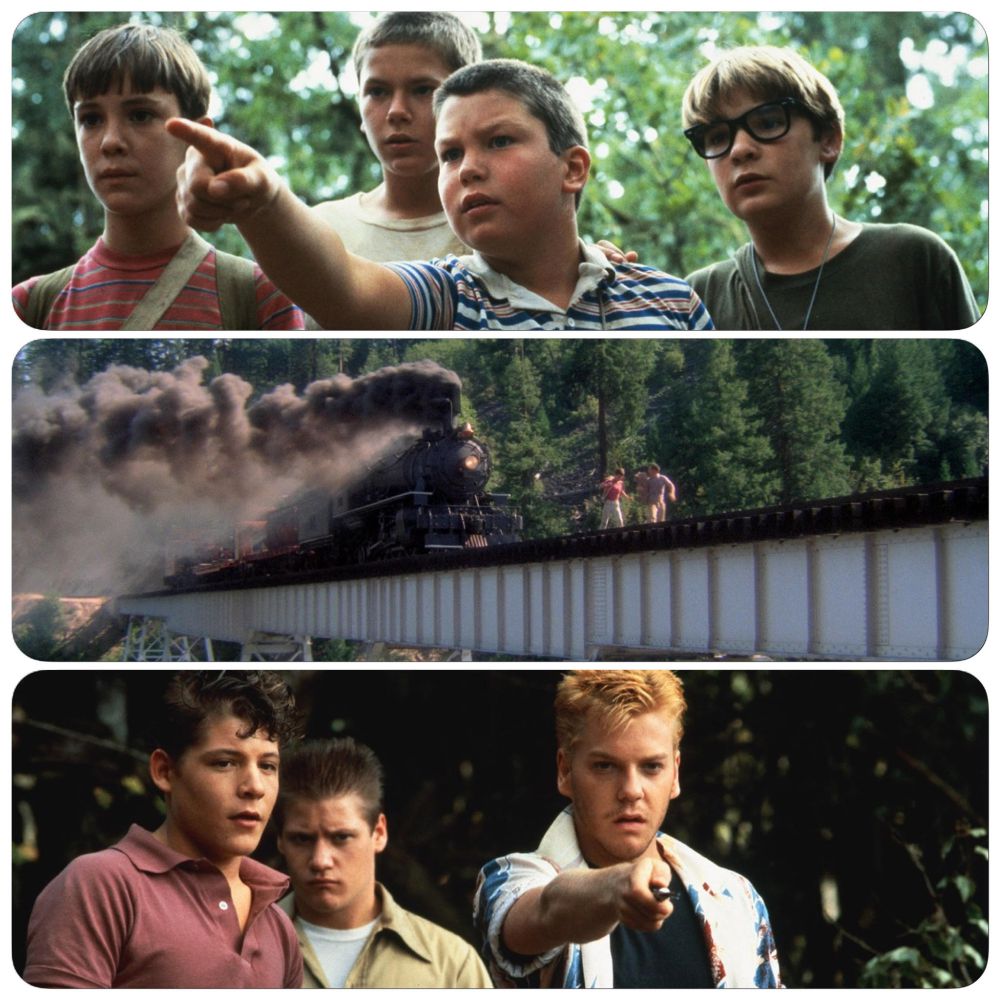The 1980s were a perfect time to tell a coming-of-age story of young kids out on an adventure by themselves, overcoming real danger as they begin to understand what it means to grow up. After all, this was the decade of latchkey children and missing kids on milk cartons. It was the last golden age of free range children in America, so how better to commemorate its existence than with a tale of kids on their own in the 1950/1960s Oregon that could have just as easily taken place in 1986 Pennsylvania? Director Rob Reiner didn’t have that in mind when he adapted Stephen King’s novella, “The Body” into the beloved Stand by Me, but as time rolls by, it looks more and more like a prescient filmmaking decision, if ever there was one.
The story takes place in the small town of Castle Rock, Oregon, over the Labor Day weekend, 1959. Geordie Lachance is introverted and bookish, a budding writer-to-be. Chris Chambers is rugged and charismatic, trying to shake off his family legacy of alcoholism and criminality. Teddy Duchamp is a joker who uses humor to hide a horrific home life marked by mental illness and abuse. And Vern Tessio is a shy and overweight, a young everyman easily overlooked. All four are treehouse friends who one day learn that another local boy has gone missing and is presumed dead. The boys hike out into the boonies in search of the body so they can find it and get credit for the discovery, and on their quest they evade junkyard dogs, endure a river full of leeches, outrun a train on a trestle bridge, and confront a gang of teenage criminals—led by the sociopathic Ace Merrill. By the time Geordie, Chris, Teddy and Vern come home, they are all a little taller, tougher and wiser.
Stand by Me drives home the fleeting nature of our relationships and how they all exist on a sliding scale of importance over time. It is a point made effectively, if not delicately, and done so in a manner that conjures less nostalgia for the late 1950s and early 1960s, but for the innocence of our youth—whenever it was—and of the bittersweet realization that our soft baby skin is toughening into the hide of adulthood.
That said, there is a point to all of this that might get lost on modern viewers tempted to look upon the borderless, summertime wanderings of these kids and lament their passing as an artifact of bygone times. Geordie can get away with being gone from home for two days unnoticed only because he is being neglected by his parents, who are grieving the untimely death of Geordie’s older brother. Chris brings along his dad’s .45 and it’s a wonder the boys don’t accidentally shoot themselves with it. The boys practically need transfusions after pulling dozens of leeches from their bodies, and the biggest thrill of the movie is when Geordie & Co. nearly get run over by a train. This is all a strange celebration of the days of free range childhood, if the highest points are how close everybody came to injuring or killing themselves. Maybe the takeaway is a sense of relief at having survived it, scars and all, and the credibility that imparts. After all, it’s a bit easier to tell your kids with a straight face not to go swimming in the quarry unsupervised when you can cite three of your own schoolmates who drowned there. But that, too, is a bitter reward for such a fine movie. The best lessons from Stand by Me might be how important it is that when we take a backward glance, we do so through neither rose- or smoke-tinted lenses. That’s easier said than done, though.
For those who most celebrate their freer, more adventuresome childhoods, this entire movie is a rolling moment of truth that recalls how we open up to each other, how we deal with our childhood problems, and how we learn to lean on each other during times of trial. But among all of this, there is a particular moment worth noting that captures both the darker dangers of yesterday’s childhoods, along with the heroics particular to them. And that is the climactic confrontation between Geordie and Ace Merrill.
Throughout the movie, we see Ace circling in Geordie’s background like a shark, the kind of small-town hoodlum who peaks at 17 vandalizing the world of adults while working up the courage to murder somebody. Ace seems ready to cross that point of no return when he pulls a knife on Geordie and offers our young heroes a choice: either give up the right to call in dead body they have found, or join it. Every lesson Geordie learns on his quest thus far distills into the courage he needs to take the pistol Chris brought along and remind Ace that it’s not smart to bring a knife to a gunfight. Ace scoffs at Geordie and asks if he plans to gun down the entire gang. And that’s when Geordie issues the kind of chilling threat that cannot be ignored: “No, Ace, just you.” Geordie’s willingness to follow through shows he is already more of a man than Ace will ever be. But the moment is bittersweet heroism. Nobody that young should ever have to step up like that. And as we learn in the epilogue, however many Geordies there are in the world, they can’t be everywhere at once.
Childhood memories, no matter how fond or formative, have a way of teaching us that we often don’t realize that we’ve bid each other farewell until long after parting company. That can encourage us to retreat to the diminishing returns of nostalgia, but it doesn’t have to be that way. New relationships present themselves at every age. We just have to look for them…and go on the adventures they offer.

Like this:Like Loading... Related





